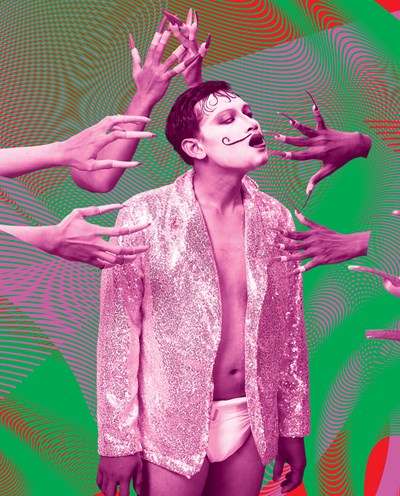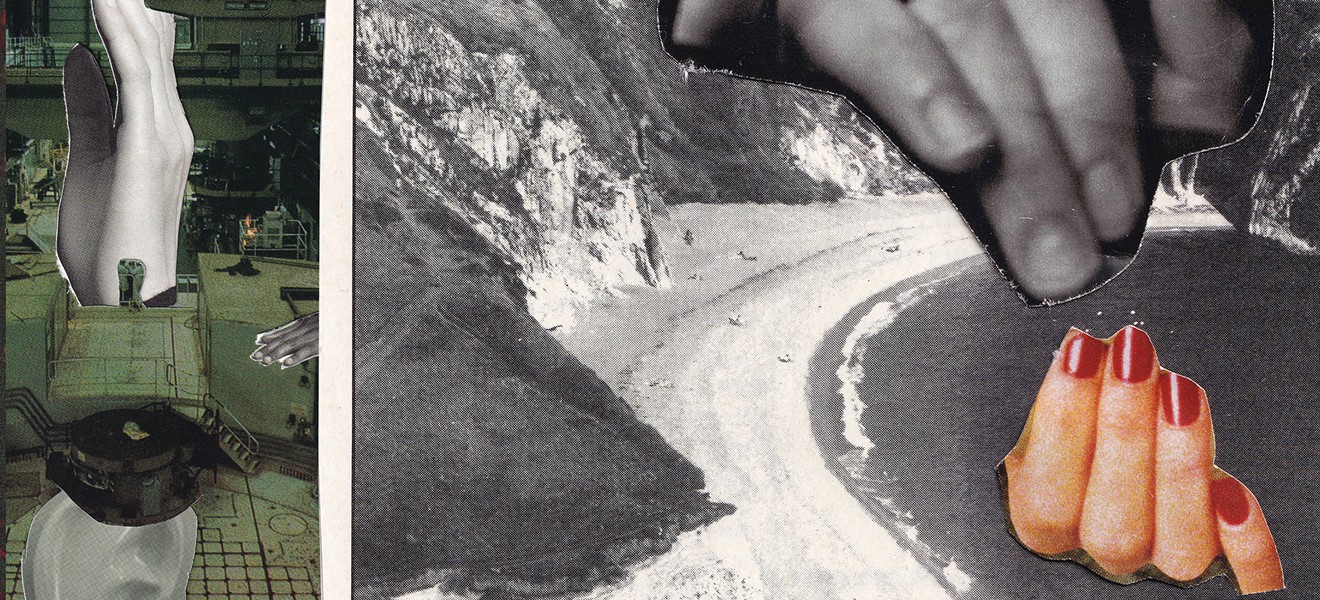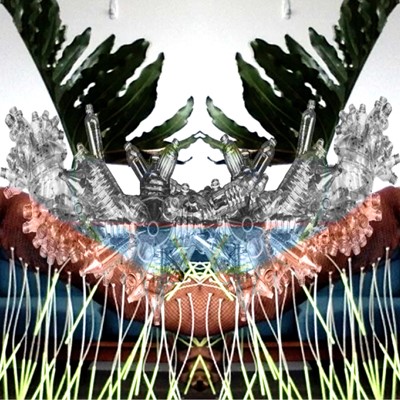
Nisha Madhan In Conversation with Jeff Khan

This year, Performance Space has invited four guest curators for LIVE DREAMS, our new platform for artists to share works-in-progress and ideas in development in a dynamic and responsive environment. Nisha Madhan is the programmer at Basement Theatre (NZ) and has curated LIVE DREAMS: ANCESTRY featuring works that channel forgotten, stolen or repressed creativity through remembering one’s ancestry. Artistic Director & CEO of PSpace Jeff Khan sat down with Nisha to have a chat about Basement Theatre, the role of the curator, re-Indigenisation and a whole lot more.
Jeff: We are so excited to have you as a guest curator in LIVE DREAMS. Can you start by telling us a little bit about your work at The Basement and what you do there?
Nisha: Basement Theatre is a space for independent artists to gather and present their work. It’s a really accessible space, and probably the cheapest place in Auckland to do so (chuckles). As such, it really lends itself towards experimental artists who are interested in performance in Tāmaki Makaurau. I was one of those artists, I am one of those artists, so mostly my journey with Basement has started with being an artist. In the last couple of years I’ve been super privileged to take on the programming role. Which I kind of see more as a role that is about caring for independent arts and the sustainability of the future of it, not just in the financial sense, but in the sense of its spirit as well. So my job is just to take care of artists, which is great.
Jeff: It's such an important part of curating, isn’t it? Especially now, when all of our worlds are in crisis and it has had such an impact on the arts. The origin of the word curating is in the idea of ‘care’: it was initially about caring for objects in museums. But in performance, especially in this moment of the pandemic and our multiple crises, curating as caring has really come to the fore.
Nisha: Yeah, and another huge part of the job at Basement is to try and figure out how to do that, especially for what we call ‘vital voices’. By vital voices we mean those voices that have been historically othered or ignored by a patriarchal Western-colonial context, which is where New Zealand sits. And so that's a real challenge, especially when you are caring for artists but you are also in this conundrum of trying to convince them to risk their own money by putting something on. Artists do an important and specific job. They process the world around them in real time and space through intention and action. Artists use ritual to weave spells that need witnesses, audiences, to activate its charm. I often wonder if, given the option, they would or would not attach a price to those rituals. I’m sort of struggling with the economics of it, especially in a pandemic. Which is posing restrictions on audience numbers and things like that. If you’re already a vital voice who has struggled to carve out your own space, or take up space, it all sort of builds up.
Jeff: Yeah, I think it makes you as a curator and programmer be extra mindful about where you put your resources. And that proper remuneration is so fundamental to how we care for artists. But there are all other forms of care, which are about understanding the work and understanding the artist’s intention, and trying to honour that with the way you present the work. It is the most critically important factor for me, but it is something that is sort of invisible when the audience sees the work.
Nisha: The kind of work we are doing at Basement is really about trying to figure out how to not only have that caring approach to work you’re talking about, but also looking at our structures and interrogating the inherited colonial forms of making and housing art. So a really cool example might be constantly looking at our contracts and making sure they are there to protect both the artist and the institution. And once you start looking at that legal language, you think “wow, this is really built to confound artists,” you know, and make them want to give up.
Jeff: (chuckles) It makes me want to give up most of the time
Nisha: Yeah exactly! So we really try to interrogate those systems quite deeply. Something we’ve just started doing is making sure we have Māori language classes every week. They take place in our work week so that it's not just this thing we practice outside in a voluntary capacity, but becomes something that is seen as completely integral to the way we approach and talk with artists - all those ‘unseen’ things. I like to call them ‘micro-kindnesses’—as opposed to micro-aggressions. For every micro-aggression, have a micro-kindness. It could be in the way our bar manager treats his patrons, or how our audiences and our artists are treated.
Jeff: I love the idea of micro-kindnesses, because it also makes that work of decolonisation - which can sometimes feel so big and scary and insurmountable - a series of actions that are within your reach. Things that we can all do and implement every day and chip away at that work... I’m wondering if you can tell us a bit about the experimental performance scene in Auckland?
Nisha: There is a really cool experimental performance scene here in the whole of New Zealand and Auckland. We have an incredible scene for sound art that is pretty internationally recognised, and our experimental dance scene is really really exciting as well. But it's interesting in the history and lineage of performance art in Aotearoa. Right now, we are at a really crucial point and I think part of it is because of the nature of The Treaty of Waitangi and the struggle of Aotearoa to really try and grapple with being a bi-cultural society and grapple with decolonisation. I find in myself, and artists generally, we are really talking about re-Indigenising processes rather than decolonisation. We are starting to realise that art created by Māori and Polynesian artists already comes with such a natural experiential sensibility. Personally, I am at this really crucial questioning point where all my experimental heroes either from New Zealand, the UK or America, have been these white definitions of what experimental or live art is. And we are starting to realise, including myself as a person from New Delhi, “actually, we had those tools all along.” Being able to work collectively, or one-on-one, or art as activism, have been in the lifeblood of people of colour and Indiegnous people for so long. So I think there is a cerain amount of reclaiming in that space, and a real surge of queer brown work coming out and surpassing everyone as they should! They are the actual, literal future!
Jeff: They are! You’ve really helped introduce me to that aspect of the Aotearoan experimental performance scene when I’ve visited. It's just so exciting to see that resurgence and those ideas of re-Indigenising and reclaiming that artistic and cultural lineage that was always there but perhaps overlooked. This really informs your approach to LIVE DREAMS and the theme of ANCESTRY that you’ve brought into your stream.
Nisha: I feel like it's purely selfish (laughs) and really, really subjective. Which is interesting, because I think the role of the curator in that white-hue, white-wall gallery space; that cool and distanced way of practicing art kind of begs for objectivity. Objectivity for me is quite a loaded word because as a brown woman I think of how white men have historically practiced objectivity over me to win arguments - they claim they are objective, but I can't be objective? It also just makes me think of Ayn Rand who is the godmother of capitalism and I'm just not about that, it's trash! Total trash! Why should we practice objectivism as something to aspire to, as curators and artists? Our role is really to care, and to care for someone is to be tied up personally with them and yourself. So I guess it all comes from me trying to care for myself (laughs)
Jeff: I really understand that! Being a person of colour and a queer person, why should we be expected to erase that experience in our work? Whose idea of excellence are we conforming to when we talk about excellence and artistic value? This is a conversation about resetting those terms of engagement with the world and our terms of engagement with artists. To privilege those vital voices and reset that cultural conversation that art is always a part of.
Nisha: In my own experimental practice I remember using experimental practice as a distancing tool. My background is in acting and I was tired of being stereotyped and being put in tokenistic roles and all that kind of stuff. I used experimental practice as the space where I didn’t have to be a young Indian woman. I could just be a person spouting whatever she thinks about astrophysics and that's allowed. But now, having been involved in that practice and scene for about fifteen years, I feel like I am coming back to being able to tell that story of myself, my ancestors, my grandmothers, than those colonial narrative structures were demanding of me at that time. It's an interesting contradiction hey? The distance is really free-ing, but also, inevitably you come back to yourself.
Jeff: But I guess it's also about on whose terms are you telling that story, or which parts you are choosing to tell. It’s more about what are you offering up? as opposed to what are you having extracted from you?
Nisha: Yeah, absolutely.
Jeff: Finally, can you tell us a little bit about the LIVE DREAMS: ANCESTRY stream that you are curating and what people might expect when they tune in?
Nisha: It was so hard to do by the way! (laughs) Especially when you don’t know who the artists are. Auckland is really small so at Basement, I know half the artists I'm talking to and the way I approach curating at the Basement is really relationship-based and so you have a long relationship with me before you even hit the stage. So, in curating LIVE DREAMS: ANCESTRY, I felt like I was flying blind a little bit! I had to rely on being a bit subjective and selfish about it. I would say there is quite a lot of Indian content
Jeff: Great!
Nisha: I was just like c’mon Nisha, I want to see it and I need to see it, as an Indian woman myself. So there is some really great stuff in there about different aspects of Indian concepts. I’m really excited about one project exploring the trans-experience and trans-goddesses from Indian mythology. I’m also really excited about an artist working with their grandmother in Israel. What excites me about it is thinking about ancestry as something that is not far away from you, but something that you are creating and living right now. Thinking about who you might be the ancestors of - and I think there's something special about that. Especially in the queer work in the ANCESTRY stream, I see a lot of future and hope, and i was really interested in that. By looking backwards how you propel yourself forward. It was also incredible to see a proposal come through from Forest Kapo who is considered a pioneer of experimental performance art in Aotearoa. They were someone I looked up to when I started out years ago, but have been based in Australia for quite some time. Forest is like a performance art jazz artist. They make visual poetry look effortless.
Jeff: It sounds super exciting and it’s always interesting when you put a curatorial provocation out there, like ANCESTRY, to see what comes back and all the facets it opens up. It sounds like there are very diverse takes on what it means to be an ancestor and thinking about it not just as something in our past that informs our present, but this continuum of time. Our ancestors are in the past and our future. It makes us think about our responsibilities in the world differently when you think of yourself as an ancestor.
Nisha: Absolutely. It was also really interesting how the provocation worked because it was the first time I’ve delved into that kind of thinking, and it really invited a lot of narrative out of artists. In an experimental context (I’m a fan of non-narrative work) it was interesting to see how narrative might be invited back into experimental practice. For a couple of decades we’ve been trying to break free of narrative structures, and now I’m wondering how they might be invited back, or reinvigorated, as a tool to further practice rather than something to rail against… I found myself really struggling with it (laughs).
Jeff: I see what you’re saying, well experimental art is nothing if not a place to sit in tension and contradiction! Thanks so much for being a part of it!
Nisha: Thanks so much for having me, it was fun even though it was hard!
If you're interested in attending LIVE DREAMS: ANCESTRY, read more and get your tickets here

